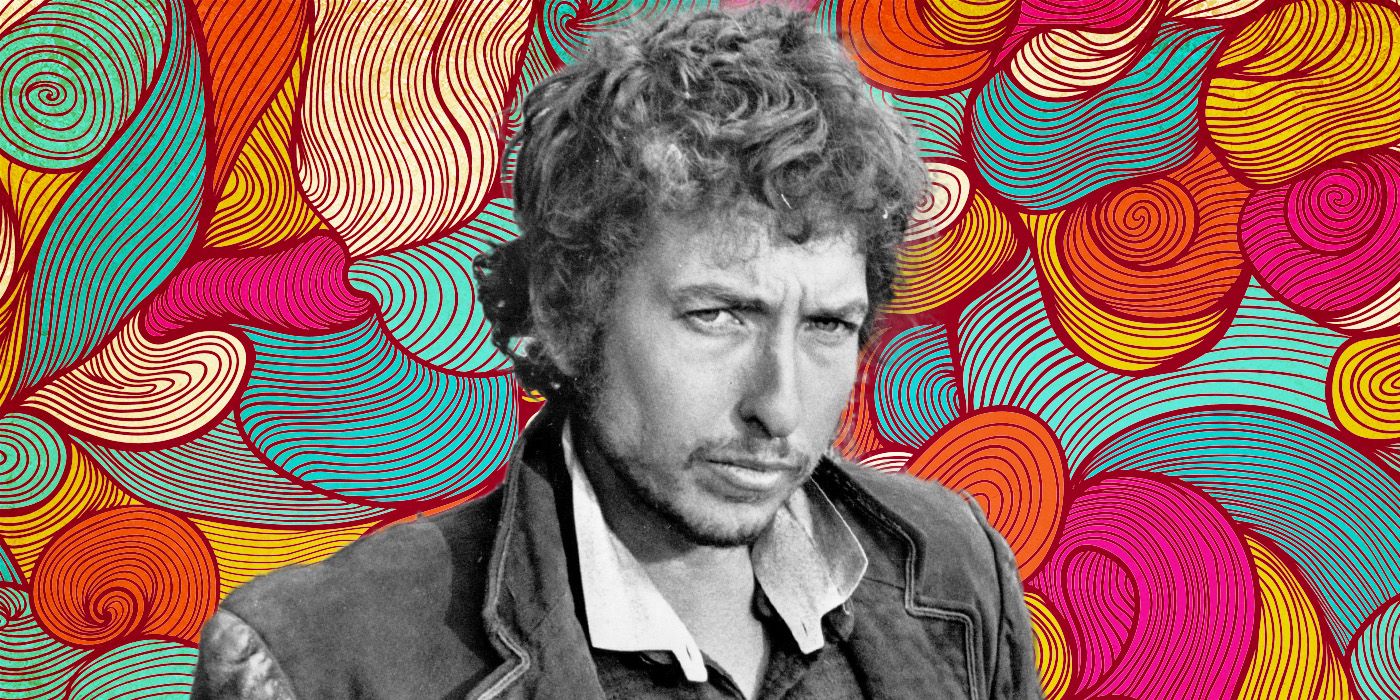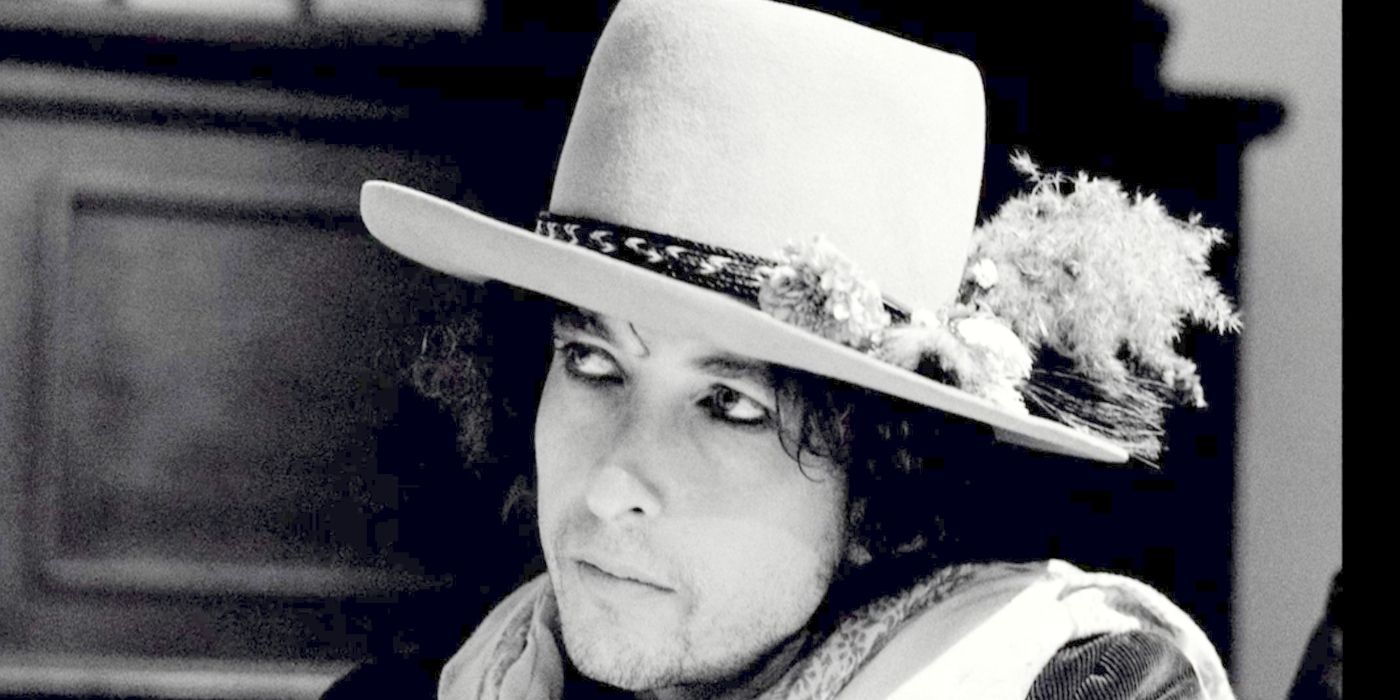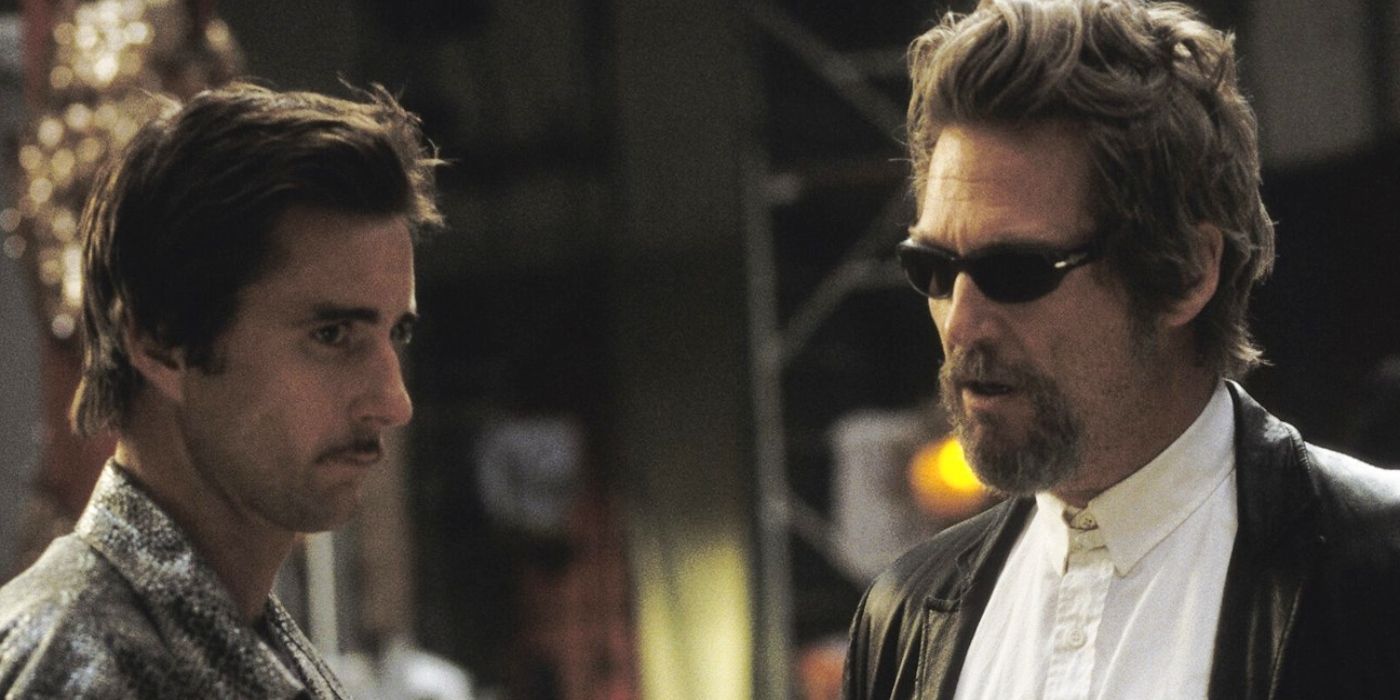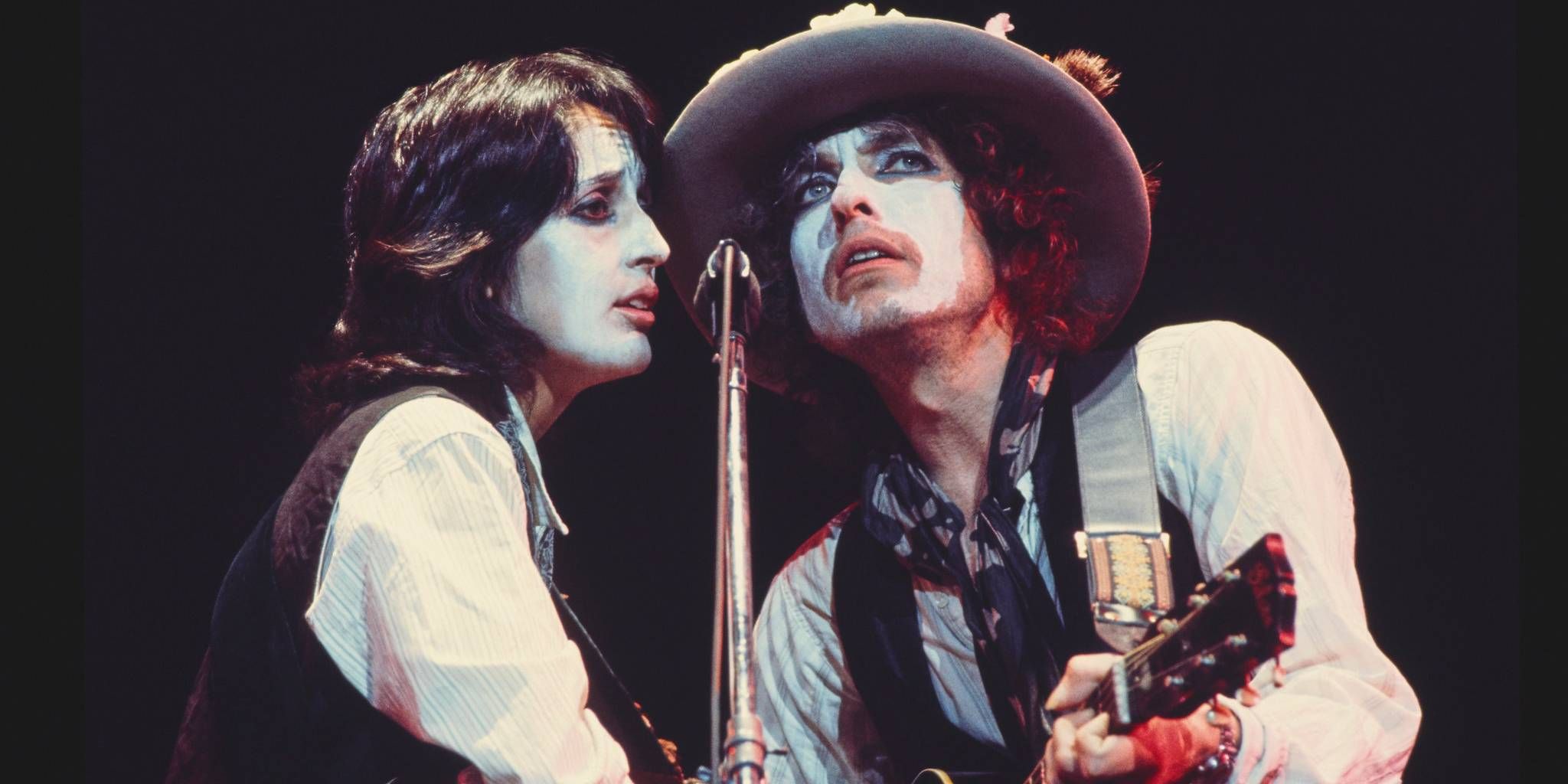The Big Picture
- Timothée Chalamet is portraying Bob Dylan in the upcoming biopic, A Complete Unknown.
- Dylan's singular vision is reflected in the bizarre & poetic world created in "Masked and Anonymous."
- His self-directed film "Renaldo and Clara" is clouded by surreal dreamlike vignettes & an enigmatic narrative.
After 80 years, 40 studio records, and one Nobel Prize, it’s still hard to know who Bob Dylan really is. In a perpetual state of self-contradiction, Dylan offered a nod of recognition to his own complications with his Walt Whitman-referencing “I Contain Multitudes” back in 2020. It’s true: the man contains about a dozen different Dylans wrapped inside a single body. It’s why Todd Haynes’ I’m Not There has six different actors — including Christian Bale, Cate Blanchett, and Heath Ledger — playing metaphorical characters that symbolize different periods and aspects of the elusive musician’s life. With Timothée Chalamet set to portray the musician in his early folk-crooning days in the upcoming A Complete Unknown, it's perfectly clear that there's no simple way to portray the man's often self-contradictory career.
Beyond appearing in some probing documentaries by D. A. Pennebaker and Martin Scorsese among others, Dylan has tried his hands at acting in an even sparser selection of fictional narrative films. Looking at the musician's acting career, which is as varied and inconsistent as anybody familiar enough with the singer-poet’s work would expect, will reveal no startling realization about Bob Dylan. Looking at Dylan's discography shows a man of monumental (yet inconsistent) talent, and looking at the man's filmography shows that while acting surely isn't his calling in life, his attempts at it are comparatively varied.
Bob Dylan's Acting Career Is Very Inconsistent
There's the late '80s misfire Hearts of Fire — perhaps meant for Dylan enthusiasts only — in which Dylan's charismatic mystique reflects the musician's own maddening isolation. There's also Renaldo and Clara, helmed by Dylan himself, which earned itself a well-deserved reputation for being largely incomprehensible; in it, director Dylan merges fiction with reality and documentary with narrative in a dizzying, maddening manner. He popped up with a semi-crucial role in Sam Peckinpah's Pat Garrett & Billy the Kid, a movie for which he also wrote the score and "Knockin' on Heaven's Door" for. Each performance has one important thing in common: Dylan mostly acts like himself, reading the characters' lines like he would say them himself. He does it again in Masked and Anonymous, this time more successfully than the others. As a whole, Bob Dylan's acting career is as bizarre and unpredictable as any aspect of the guy, illuminating little about who he is, but painting a fascinating portrait of an artist perpetually shapeshifting.
Unless he makes an unexpected late-career pivot, he won't likely be making the lists of musicians turned into acclaimed actors, but he did take a stab at it in a way that only he could. Pat Garrett gives him a minor role which he plays well, and Masked and Anonymous finds him playing a bizarro version of himself which leaves little room for failure. In Hearts of Fire, Dylan plays Billy Parker, a rockstar turned recluse (sound familiar?) who takes an aspiring singer (Fiona Flanagan) under his wing. When they travel to England, a contemporary rock musician (Rupert Everett) comes into play and a love triangle forms. It's a movie throughout which Dylan seems a bit disinterested, which can perhaps be chalked up to being shot in the middle of yet another musical transition.
After abandoning the born-again Christianity of Saved and Slow Train Coming, Dylan was overdue for his next career renaissance, and it's here that a soul-searching pivot into acting (again) is just another unpredictable moment of an entirely mercurial career. As seen in a press conference for the film, it feels like Dylan's just passing time between musical eras. Featuring a decidedly uncomfortable age gap between the two leads, a handful of musical numbers, and one of the greatest fake punches in all cinema, Hearts of Fire gives us more of Bob Dylan the actor than any other film yet. While it may not be one of the finest musical films ever shot, it's a fascinating time capsule showing one of the world's greatest musicians lost in the turmoil of a search for self-identity.
Who Does Bob Dylan Play in the Sam Peckinpah Western?
Pat Garrett and Billy the Kid features him in a minor, largely comic role coming off the release of New Morning only three years prior. After shifting from a folk singer playing protest songs to a mystifying rock star, Dylan became reclusive after a motorcycle accident changed his life. It was during this period that he was reclusive when cracks in the veneer of his persona began to show. Before taking on one of the greatest comeback tours of all-time, he showed up in Peckinpah's Western film. Dylan plays Alias, a weird storeowner-turned-gunman who takes up with Billy the Kid (Kris Kristofferson) and his gang.
Alias, mostly put on the sidelines to watch the action unfold (and offer a few gunshots in assistance), is 100% Dylan. When asked questions, he gives elusive answers. "That's a good question," he retorts to the very reasonable, "who are you?" The role is ultimately too small to ever get a real grasp of how he'd fare working with a cast of talented actors and a high-caliber director, but there's an impressive sort of star-power that he brings to the role. In a scene late in the film, Alias is told at gunpoint to read off the labels of cans in a general store. He does. “Beans...beans...baked beans...beans with spinach..." Alias spews in the background with Dylan's natural comedic timing.
Bob Dylan's Strange Visions Come to Life in 'Masked and Anonymous'
It wasn't really until Masked and Anonymous that Bob Dylan's acting career made any particular sense. While his bit role in Pat Garret was, if nothing else, entertaining, Masked and Anonymous found Dylan playing in a world he built. Working with Larry Charles, Dylan plays the enigmatic Jack Fate, a legendary musician released from prison in order to play a benefit concert. Charles took a series of unrelated lines and ideas that Dylan wrote and kept in an ornate box, and helped fashion a script out of it.
It’s a bizarre little film, the cinematic manifestation of a Dylan song; it’s chaotic, poetic, and largely incomprehensible. A scattershot vision of a doomed and hellish dystopian future in which poverty runs rampant, bloody conflicts are slyly funded by first-world governments, and sociopathic political figures lie and cheat their way into positions of power. Like the apocalyptic visions of (“A Hard Rain’s A Gonna Fall” and “It’s Alright, Ma”), the movie is less a doomsday fantasy than a mirror reflecting a critical view of the present. It's a deeply weird satire, one that perhaps deserves to be ranked among the finest of the 21st Century.
Alongside Dylan, the film circles around a cast of depressive sadsacks who spend most of their time spewing borderline nonsensical quips that vary from cynical to misanthropic. Uncle Sweetheart (played with complete commitment by John Goodman) is the sleazy businessman who sets up the benefit concert in order to embezzle enough money to pay off some militaristic loan sharks. A bespectacled Mickey Rourke plays a cold-hearted politician with a seemingly ineffable influence on the decaying alternate America. Pagan Lace (Penélope Cruz) is a religious fanatic with an obsession with Fate's discography. A compelling Val Kilmer, playing an animal wrangler, sets off on an unrelenting rant about the superiority of animals to humans, listing off different creatures in a machine-gun fire speech pattern, ending with the sentiment that man’s supposed dominion over animals is not only wrongfully assumed but inarguable proof of his untamable wickedness. It’s hilarious in the way that Dylan frequently allowed himself to be, on cuts like “Motorpsycho Nitemare” or "Talkin' World War III Blues."
'Masked and Anonymous' Benefits From Its Cast
The cast list is much more sprawling than that, with Luke Wilson, Angela Bassett, Jessica Lange, Bruce Dern, Jeff Bridges, and many others looking sincerely ecstatic to be in a movie with Bob Dylan. Meanwhile, Dylan plays Fate completely straight, nearly emotionless, typically offering little more than a facial expression in retort to his co-stars' lines. Who Fate really is, however, is a question that's never truly answered. Where's he come from? What does he want? Why’s he in jail? It’s never made clear, but his name is variably mentioned in reverence. There's some clear overlap between Fate and Dylan, and that's why he plays the role so well. He wrestles with his persona, the way he is and has been perceived by the media. His singular vision of modern society, at once caricaturistic and deeply poignant, is a world that he simply wanders through, observing and internalizing his thoughts, perhaps saving them for a song.
Critics of Masked and Anonymous might decry its refusal to play by traditional structure, but here's the thing: like Fate, who wanders through the movie soaking up the ramblings of the eccentric characters around him, the movie is in a perpetual state of wandering. The pieces that make up the whole don't necessarily aim towards a greater purpose. They are the purpose. It’s hard not to spend at least some of the runtime wondering what the hell it’s all about, like listening to some of Dylan's more cryptic cuts for the first time. This is largely why it works as a film; it's like a river to float down while the cryptic images flash around you.
Bob Dylan Has Also Directed Himself in Movies
The most infamous of any Dylan film is probably Renaldo and Clara, a documentary-fiction hybrid directed by Dylan himself, and it's become so widely dismissed by critics that it's difficult to find in any watchable quality online. Martin Scorsese remixed large chunks of footage from the film in his documentary Rolling Thunder Revue: A Bob Dylan Story by Martin Scorsese. Scorsese's documentary is a brilliant, psychedelic trip into the titular Rolling Thunder Revue tour that birthed Renaldo and Clara — only Scorsese works with Dylan to further obscure the truth of the tour, continuing the mystifying work begun by Dylan back in the '70s.
In Renaldo and Clara, Dylan juxtaposes surreal and dreamlike fictional vignettes alongside interviews and concert footage. Alongside playing the Dylan-like character of Renaldo, he casts his then-wife Sara as Clara and his ex-lover (and folk-singer) Joan Baez as a third member of a tumultuous love triangle. The "plot" itself is almost impossible to follow, given that there's often little to discern which portions of the film are the story of Renaldo and Clara and which are merely moments of Bob and company on tour. It's perhaps the only opportunity to see Dylan dabbling in cinema purely on his own terms, and the end result, at the very least, is unlike anything else out there. Is the acting good? Does it matter? Any clear narrative is clouded by Dylan's reluctance to become confessionally autobiographical. Pieces of it are there, but they're hard to find.
What we're ultimately left with is a few spare offerings of a poet-singer never really trying his hand at acting. Never a true movie star like Bowie, Streisand, or Sinatra, Bob Dylan continued to operate as he had from the start, exactly as he goddamn wanted. When asked who Jack Fate really is, the cast of Masked and Anonymous can't really come to a consensus. It's fitting, considering Dylan, even so late in his career, remains himself an enigma. Much of what we see of him in his few acting gigs shows a brooding, misunderstood loner who lives on the fringes of society and looks in through a thick-paned glass at the way the world looks. It might all be there in his music, but the movies only add to the mystique.





